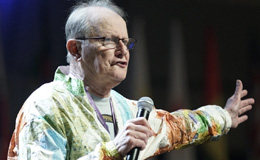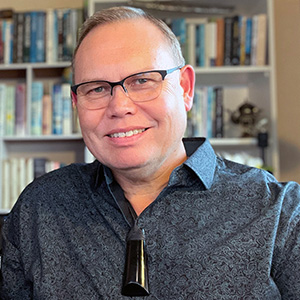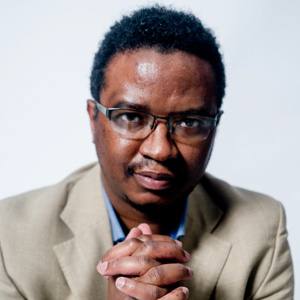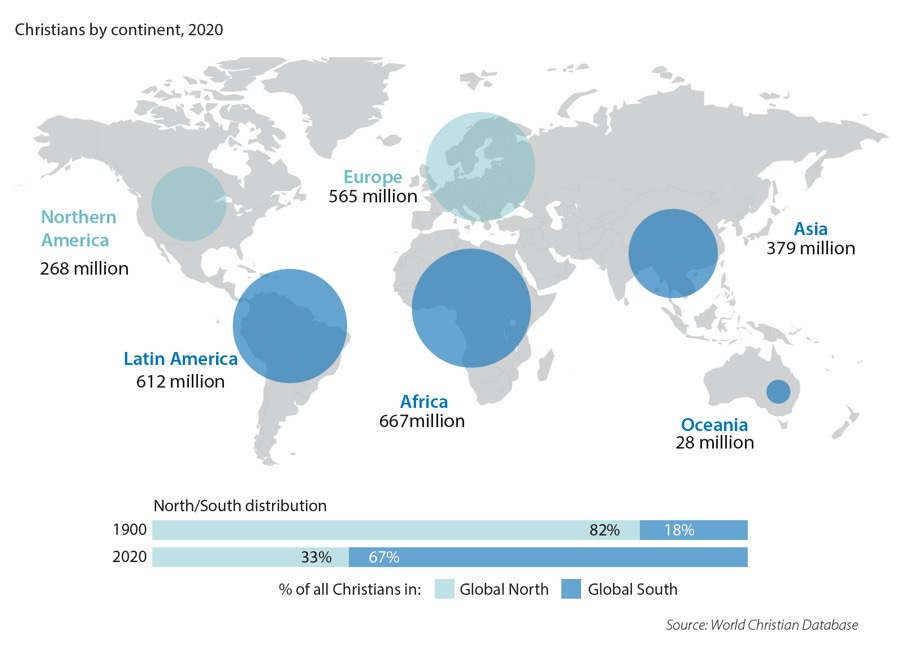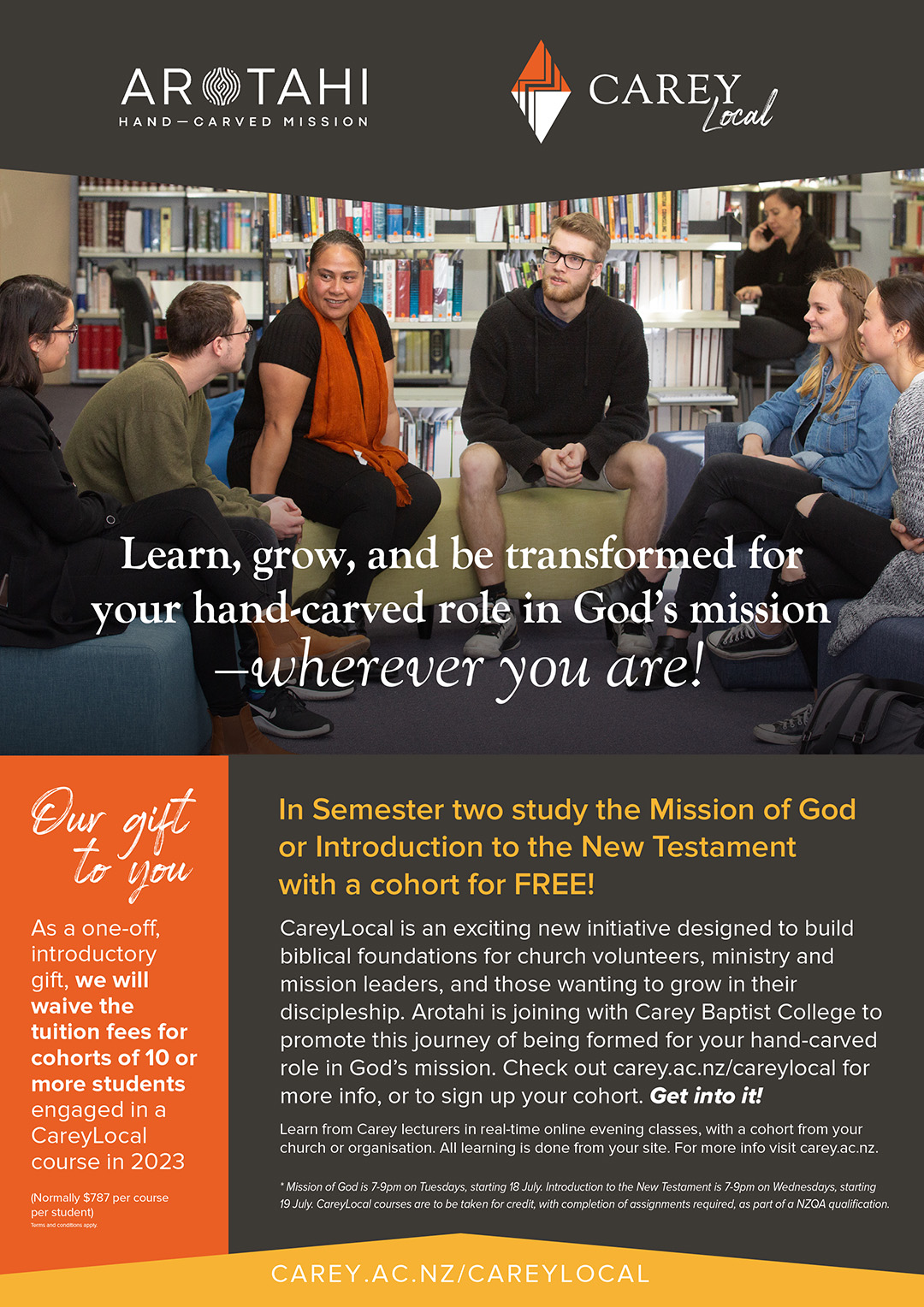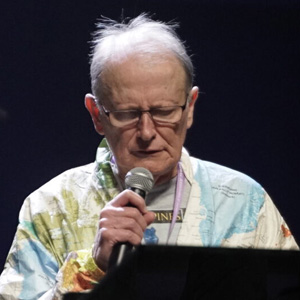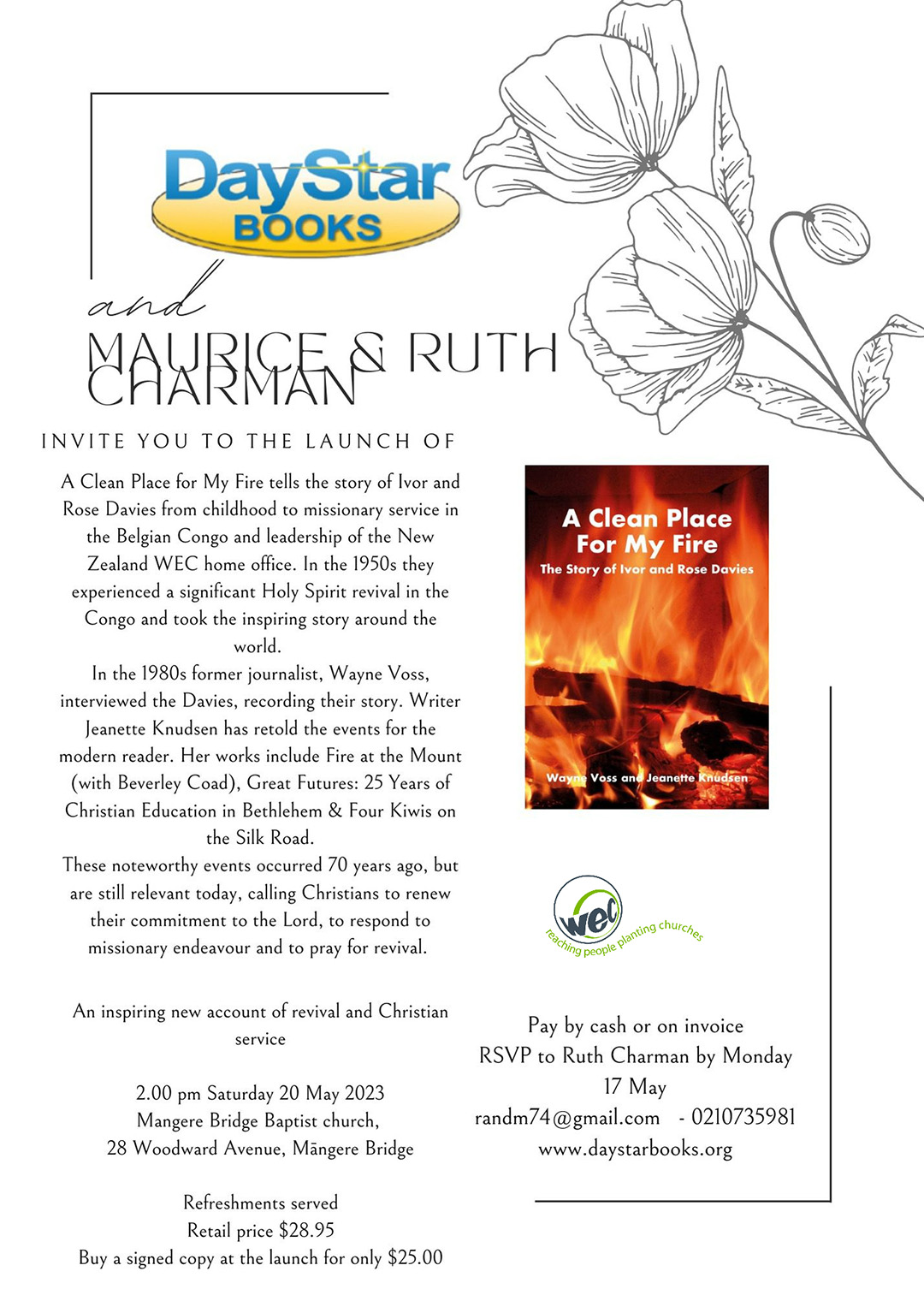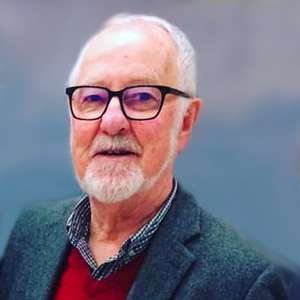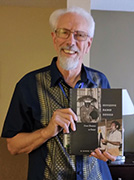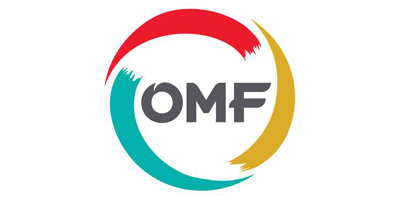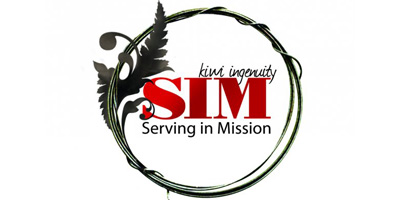
QUICK MENU
EDITORIAL
- Reach For The Light
EQUIP
- Weak Doctrine
- Mission: Decolonised
GO
- Remembering George Verwer
- Singing Samo Songs
CARE
- I’m Fine (Not)
PRAY
- CWI, FEBC, ISV, MINZ, OMF, SIM, WEC, WBT
SPOTS
- Latest News & Events

EDITORIAL
REACH FOR THE LIGHT
By Dr Jay Matenga
Jay is the Executive Officer of Missions Interlink, Director of Global Witness for the World Evangelical Alliance, and Executive Director of WEA’s Mission Commission. Jay writes and speaks on missions related subjects globally. His blogs, articles, and other public contributions are made available for free on jaymatenga.com
This month’s whakataukī (proverb) is, “He mano rau, he mano ara, whaia te ara o te kareao” [A thousand leaves, a thousand branches, follow the path of the supplejack vines]. The supplejack (kareao or ripogonum scandens) is a rainforest vine native to Aotearoa New Zealand. It begins life as small sapling searching for some support. When it connects to a shrub or tree, it clings and grows upwards to access sunlight, after which it grows branches and leaves. It advances at a rate of about 5cm per day, climbing high into the canopy of dense forests. Cut down, it has handy uses as a type of rope or binding, wicker, medicine, or even food in its early stage of growth, but forests woven with the stuff are a nightmare for humans to traverse! I spent countless hours as a child playing alone in a native bush gully down the back of the farm, living out made-up stories, swinging from the vines, and hacking them with my bowie knife in an attempt to do something creative with them afterwards (hint: they don’t make good bows for arrows).
I have been thinking a lot about trees lately, and what we can learn from them. I am currently reading “The Sound of Life’s Unspeakable Beauty” by master luthier Martin Schleske, a famed violin maker. It makes for stunning devotional reading. Consider this lesson learned from trees…
A resonant life demands wisdom and courage. We must discern which things are dead and separate ourselves from them. An honest heart recognizes the dead limbs that are robbing us of strength and self-worth. For the tree, this wisdom is self-evident, but the myriad of options granted by our freedom makes our journey much more complex. Nothing in our life is self-evident. We must learn to stretch ourselves up toward the light in every area of life, through every branch, twig, and shoot of our existence. This is why Jesus says: “I am the light of the world. Whoever follows me will never walk in darkness but will have the light of life” (John 8:12). (Pages 24-25, Kindle version).
Schleske here is speaking of the ‘singing trees’, spruces found high in the Bavarian Alps that make the best material for instruments because of the resonance created by their challenging environments and long slow growth. Survival depends on the ability to find water by its roots and light by its leaves, just as the supplejack and every other plant does. Surrounded by a thousand leaves and a thousand branches, follow the path of the supplejack: to the light.
Schleske later elaborates on this principle in wise application…
Now that the seedling has pushed its roots into the ground, the life within it begins to emerge. The leaves are the next to unfold. Here is another lesson about communal life, one that seems to contradict common sense. Roots not only nourish the tree but need nourishment from the leaves as well. That is the two-way system found in all wooden trunks: in the wood’s vascular tissue, water and mineral nutrients climb up out of the roots. A sugar solution in turn travels from the top, into the outer layer of the bast fibers, and back down to the roots.
This process describes the secret of a truly Spirit-filled community. If the roots were to keep the water all to themselves without passing it on, that would be the death of the leaves; by the same token, if the leaves were to keep the light all to themselves and not pass it on, the result would be the death of the roots. To take but not to give is a form of suicide. When the leaves allow the roots to die, or the roots the leaves, they are killing themselves. (Pages 36-37 Kindle version)
Is that not a wonderful parable of body-life in-Christ for our learning?! The Apostle Paul provides similar encouragement throughout his epistles, as do the other New Testament writers. The lesson of the tree (cf. Matt. 24:32) in this case is that we are to be intimately interdependent in all our glorious diversity. This is a condition that I now refer to as our “integrated singularity” in-Christ, through our covenantal allegiance to him, empowered by the Holy Spirit. Being one people, an integrated singularity, is captured in the Māori concept of “kotahitanga”. I considered the significance of kotahitanga and koinonia in an article published in the International Review of Mission [Issue 110.1 (412)] back in May 2021. For a much shorter development of the missions significance of being an integrated singularity as a primary form of witness to new creation in-Christ, the transcript of my contribution to a recent Churches Together in England webinar can be accessed from my online archive here.
In Romans 12, Paul shifts from establishing all that God has done for us in Christ (Romans 1-11) to what is tantamount to ‘how then shall we live’ (Romans 12-15, or 16 if you count his greetings as a real-life demonstration of the way to live in harmony as a culturally diverse people). I think an ‘interpretive key’ here is Romans 12:6, “In his grace, God has given us different gifts for doing certain things well.” In the deceptively simple system of a plant, leaves photosynthesize and roots draw mineral rich water, both depend on each other for their very survival — as the branches are dependent on the vine’s root system (cf. John 15).
Romans 12 begins with a majestic explanation of true, rational, reasonable, logos-formed (Greek = logikos) worship (Romans 12:1c). Majestic, but woefully misunderstood by and large. As I am compelled to point out, Romans 12:1-2 has very little to do with our private devotional life or public liturgies (as wonderful as those things can be); rather, it is entirely focused on our communal life as an integrated singularity—Christ’s holy community. Our living sacrifice is our yielding to one another in humility as our acceptable response to all that God has done in Christ, giving space for others to make their contributions (Paul refers to this as kenosis in Philippians 2 with the example of Jesus “giving up” His privileges as God). Loving one another in mutual generosity is the ‘logical’ expression of our worship of God. In this way we are not following the pattern of this world that seeks to only divide and conquer (the antithesis of being an integrated singularity), but as we learn to learn from one another we will be transformed because our relationships shape the very way we think (as the science of interpersonal neurobiology has now well established). Through this process we discover God’s good, pleasing and perfect will: that we be one (John 17, Psalm 133, etc. etc.). The rest of Romans flows on from this pivot. In short, Paul is demonstrating how we are meant to co-create new creation as an integrated singularity in-Christ.
If you caught the echoes of John 14-17 in all of that, you are following the path of the alpine ‘singing’ spruce, and of the supplejack, to the light. For the light is the truth that once and for all Christ’s death and resurrection has cast down the barriers that divide us because of our differences (Ephesians 2:14) and as we keep in step with the Spirit (Galatians 5:25), we will keep the unity of the Spirit through this bond of peace (Ephesians 4:3) for we are one (Ephesians 4:4ff)—an integrated singularity.
And, brothers and sisters, here’s the missions point: because of this, the world will believe (consider credible) and know (personally experience) that e te matou Matua e te rangi (our parent in heaven) lovingly sent the Son to usher in new creation—a peace that the world cannot give. This is what reaching for the light looks like. This is the gospel. This is what digging our roots deep into nutrient water of life is all about. It is a holy communion—an integrated singularity in-Christ. So let’s drop all the dead limbs and leaves, that stuff that ruins relationships, saps us of our true strength and diminishes our unity. Let’s not focus on the thousand leaves and branches around us that block out the light. Instead, let’s continue reaching higher where we can bask in the goodness of God radiating through the grace given to each of us. That’s the light of life that will enable us to participate well, Together: On Mission.

A ‘WEAK’ DOCTRINE OF SCRIPTURE
A THOUGHT EXPERIMENT
By Dr Kees van der Knijff
Kees is the Assistant Professor of Systematic Theology at Arab Baptist Theological Seminary in Beirut Lebanon. Born and raised in the Netherlands. He moved to Lebanon in 2021 as a missionary for the Dutch mission organisation GZB and is an ordained pastor of the Protestant Church in the Netherlands (PKN). This article is curated from ABTS’ blog, 27 April 2023.
God’s work in the world has a distinct character. It often moves against all expectations. God chooses the younger brother. He gets into a covenant with a marginal tribe that is more often disobedient than not. He comes to earth as the son of a carpenter in a disadvantaged area. As the climax of it all, he dies a shameful death on a cross. All of it is utter foolishness in the eyes of the world, as Paul makes clear (1 Cor 1:18-25). Theologians have come up with different concepts to describe the distinct pattern of God’s activity. Terms like cruciformity or Christoformity are quite common today. The key idea is the same: God’s acting in the world takes place in the form of “power in weakness”.
As evangelical Christians, we are willing to embrace this pattern on multiple levels. The cross is of central importance in our faith and spirituality. We do not believe in a prosperity gospel and are uncomfortable when Christianity is related too closely to earthly powers. Our church services are still mostly centered around the (humanly speaking) foolish act of preaching. Multiple other examples could be given. Yet, there is one area where we make a big exception: in our doctrine of Scripture.
What do I mean by that claim? Basically this: there is a strong tendency in evangelical theology to hold to a “high”’ doctrine of Scripture. We want to be able to state full-heartedly that the Bible is the word of God. As a result, evangelical defenses of Scripture abound. We do whatever we can to bolster Scripture and defend it against its “liberal” attackers. In some circles, specific keywords (like inerrancy) even function as some kind of litmus test for real evangelicals.
In my observation, this desire for a “strong Bible” can be even bigger among some Arab evangelicals. And that is not without reason. Compared to the claims that Muslims make about the Qur’an’s origins, the Bible seems to have numerous “disadvantages”: multiple human authors, some of whom we do not even know; a long history of writing and editing; a contested history of canonization; multiple textual variants; etc. In a context like the Arab world, it makes sense to defend the strong nature of the Bible, right?
Recently, the discussion about the inerrancy of Scripture was revisited in the circles around ABTS. During the conversations that followed, I wondered: would it be possible, instead of refining and re-defining the main terms involved, to transpose the entire discussion to a different key? Would there be a way to talk about the authority of Scripture that helps us to focus on the Bible in the overarching context of God’s mission, instead of objectifying the Bible and describing its inherent properties? If so, this could be very helpful, especially in light of the fact that discussions about inerrancy have no long history in the churches in the Middle East, whereas thinking about the mission of God has been central to ABTS’s approach to theology.
One idea that crossed my mind is the idea of “power in weakness”. What if we started from the usual pattern of God’s involvement in the world? God often uses unexpected, humble instruments to accomplish his divine intentions. From that perspective, we have no reason to be ashamed of our “weak” Bible. Yes, it is deeply human. Yes, it took several ages before it was complete. Yes, when we study the history of canonization there are so many points where, from a human point of view, things could have gone in a different direction. And yet, when we open this book, we experience it: we step into a dynamic force field where the Spirit of God is active. Where God takes those human words and speaks into our lives with power and authority.
So how could this different approach to Scripture help us further? How does it help us move beyond the kind of discussions that are often imported, but not always important? The longer I think about it the more advantages I see. In this blog, I will mention three that I consider crucial.
First, applying the dynamic of “power in weakness” to Scripture helps us to focus on Scripture in the bigger context of God’s work in the world. This approach emphasizes from the outset that as Christians we are not primarily people of a book, but that Scripture is a primary instrument in the way the Trinitarian God engages with his creation. We do not put our hope in this book, but in the God who has chosen to reveal himself in and through it. Hence, this way of speaking about Scripture focuses our attention on God’s character from the start. This is the God we believe in: the God who always surprises us in the way he goes about his work. The God who mostly chooses the lowly and humble as his preferred instruments. The God who revealed himself in the deepest way on a shameful cross.
In the second place, speaking about Scripture in terms of “power in weakness” helps us overcome our defensiveness. Many evangelical accounts of the doctrine of Scripture are defensive in nature and, in my opinion, all too often driven by fear. A fear that, if this stronghold crumbles, our entire faith is based on loose grounds. If we accept the “weak” nature of the Bible, the need to defend it disappears immediately. God has given us a book that no one else would have thought of: written through a process of ages, edited on multiple layers, full of stories that we would have preferred to leave out. Somehow, in his unfathomable wisdom, that “weak” way was the way he deemed best. Therefore, we can receive the Bible as God’s word with gladness, as a precious gift. In all its humanness, God’s signature is all over it.
That is also why, in the third place, the paradigm of “power in weakness” helps us to read the Bible with expectation. I do not know many readers whose level of expectation rises from the idea of reading an inerrant book. But when I come to the Bible with the idea that God uses it to reveal his power, I definitely read with different eyes. My heart and mind are in a different mode: how will God take those ancient stories, poems, and letters to reveal himself to us, to me, today? How will he surprise us by revealing his power through the weakness of those words? For that is what happens again and again when we read the Bible: we experience that they contain a power that is of an entirely different order than the power of perfect or faultless words. It is the power of the Spirit of God. A power that surprises, comforts, calls to faith. But also a power that disrupts, confronts, corrects. It is astonishing what God’s “power in weakness” is able to accomplish!
Could this approach be a way to overcome unhelpful approaches to the Bible and its authority? A way beyond stalled discussions that opens up deeper conversations about our Scriptures? That is for readers to decide. Personally, I think it might be a fresh way of thinking about Scripture that could help us get out of our trenches and rejoice again in this incredibly rich gift that we have received in the Bible. Take and read, and expect to be surprised by power in weakness.

MISSION: DECOLONISED
UNSHAKEABLE THOUGHTS
By Dr Harvey Kwiyani
Harvey is the CEO of Global Connections, the UK equivalent of Missions Interlink. Originally from Malawi, he is a missions theologian with twenty years of missions and theological education experience in Europe and the United States. In addition to having a passion for the gospel in Europe and America, he also participates in conversations concerning Majority World involvement in global missions. He has published several books including Sent Forth: African Missionary Work in the West and Multicultural Kingdom: Ethnic Diversity, Mission, and the Church. This article is a compilation of thoughts curated from Harvey’s Substack, Global Witness, Globally Reimagined. If paragraphs appear disjointed it is because they represent a separate post from Harvey
Welcome to “Mission, Decolonised.” where I dream about mission in a postcolonial world. There is a lot of deconstruction going on in our Christian communities. While some who deconstruct their faith continue as Christians (even though they may believe and behave differently from before), many end up losing their faith altogether for reasons that often sound plausible. The deconstruction of mission is, to a large extent, yet to happen. But, of course, it will happen, sooner rather than later. And, unfortunately, mission is an easy target. Its Achille’s Heel is the long history of many (and not all) missionaries aiding western expansionism and colonialism, especially in the Americas, Africa, and parts of Asia [and the Pacific]. When the postcolonial discourse turns towards Western mission in the world, it will have a devastating effect—worse than China expelling Western missionaries in the 1950s. My hope is when that happens, we will stand on a better missiological foundation, as I am convinced that God has an answer ready.
It is now a generally accepted fact that the statistical centre of gravity of Christianity has shifted to the global south. Together, Africa, Latin America, and parts of Asia are now home to almost 70 per cent of Christians in the world. By 2050, Africa alone will be home to more than 40 per cent of Christians in the world. The implications of this emergence of world Christianity on mission are massive. Will Christian mission’s centre of gravity also shift to the south? To Brazil? Nigeria? South Korea? If it does, what will it look like? What theological resources will it need? Of course, the language of “mission from six continents to six continents,” or that of “mission from anywhere to anywhere else”, has been around for decades since the 1950s.
Unfortunately, many of the dominant models of mission today, shaped by Westerners for other Westerners as they are, are not easily applicable to non-Western missionary work. First, they are too tied closely to geography — mission happens in certain parts of the world, and not in others. With this comes the need to go from the West to the rest of the world. This kind of mission is something that Westerners do elsewhere. Second, many current models of mission are also predicated on the supposedly superior Western worldview and the dissemination of its culture to the nations. Converts, generally speaking, have to believe and behave like Westerners. Otherwise, they need some more missionaries sent. Finally, they excessively depend on money. It seems that only rich nations can effectively participate in God’s mission in the world. Indeed, how can the financially under-resourced churches of sub-Saharan Africa, for example, afford to send missionaries overseas when they actually need financial support to survive? Did God also call poor nations to mission? Contemporary mission is still, to a great extent, a Western adventure. Its power and authority are located in Western cities and its theology is deeply shaped by Western thought. When shall missiologies from the Majority World emerge to show us how to participate in God’s mission differently?
Andrew Walls once wrote about the concerning situation where academic theology (and missiology) continues to be white while the majority of Christians in the world are black and brown. He wrote, “Western theological [read “missiological”] leadership of a predominantly non-Western church is an incongruity.” He had earlier lamented what he called the “untroubled rule of palefaces” in (mission studies). Several decades after Walls wrote this, we are seeing the beginnings of a global, multi-ethnic, multicultural, and polycentric missionary movement. This movement will need global voices of missions thinkers and practitioners talking to one another and to God about what God is doing in the world. It will open up spaces for theological and missiological cross-pollination of stories of God’s work around the world. Such stories will decenter (and not dismiss) Western missiology and push it to engage with new voices from Africa, Asia, and Latin America, many of which are still wrestling with colonial legacy of the past 200 years of mission.
Unfortunately, missiology is a whiter world than theology (though theology is also a white-dominated field). Of course, the critique of mission’s connection to colonialism (both political and ideological) is only beginning now. The future of both mission and missiology is multi-ethnic, not white. Eventually, those who want to keep mission white will lose out because to be properly missiologically-informed in the 21st century, your reading lists must engage mission scholars and practitioners from around the world. Some of them will be uncomfortable, but you need to hear them out. If everything you know about mission has come from Western books, you are grossly under-informed, and your missiology is not fit for the 21st century.
It is a well-accepted fact that Africa has been evangelised by Africans. Of course, the same can be said of many parts of Asia and Latin America [and the Pacific]. But, for Africa, we are aware that, for several decades now, thousands of indigenous evangelists and catechists have trekked from village to village, from town to town, to make converts and disciples for Christ. Africa’s communal culture has helped along the way. Converts go on to evangelise their families, clans, tribes, etc, and before long, Christianity becomes the preferred religion for large communities.
This fact that local Christians, generally speaking, form the best evangelists and missional leaders among their own people has been known for a while. In India, Donald McGavran tells us that it was local evangelists who made the most converts and this is how the Church Growth Movement came about in the 1960s. In Africa, in 18 months between 1913 and 1915, William Wade Harris baptised 120,000 people when, in the same period, Western missionaries in West Africa baptised only 1000. Many local leaders, like Apolo Kivebulaya (Uganda) and Harry Matecheta (Malawi), served in mission-established churches, while others, including Simeon Kimbangu and Isaiah Shembe went on to form their own denominations. Yet, with all this, the missionaries continued to form African Christianity after their own kind, with most of its theological identity shaped in the West.
In the 1960s when most African states won their independence from colonial governments, the missionaries wrongly said that local Christians were not ready to lead their own churches yet. No wonder the ongoing decolonisation of African Christianity has been a lot harder than that of the African nation-states. Yet, it is actually after the 1960s, when the leadership was passed on to Africans, that the explosion of African Christianity began. Could it be that, by not trusting local agency, the missionaries get in the way of the work of the Spirit of God?
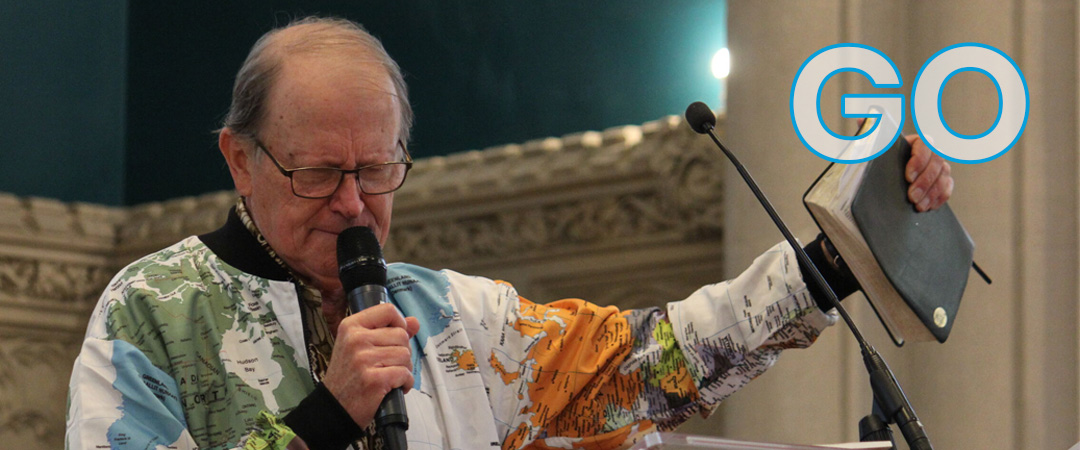
GEORGE VERWER (1938-2023)
HONOURING A MOBILISING PIONEER
A MEDIA RELEASE COMPILATION
This memorial article is drawn from a number of sources in honour of the life and contribution of George Verwer, founder of Operation Mobilisation, to the shape and momentum of 20th Century global missions. Short-term opportunities, intensive missions promotion and training, book publishing and distribution, and ship ministries are among the legacies of this mobilising pioneer.
Born in New Jersey USA during World War II, George was 14 years of age when he received a Gospel of John from the son of Dorothea Clapp, a woman of prayer who steadfastly prayed for the students at Ramsey High School in Wyckoff, New Jersey. George credits his response to follow Jesus at a Billy Graham meeting over a year later (in 1955 at the age of 16), and subsequent ministry pathway, to Mrs Clapp’s prayers. From the time of his own conversion, George realised his calling as an evangelist. Around 200 of his fellow classmates came to Christ shortly after George, but it wasn’t long before George’s evangelistic passion led him to yearn to take the gospel of Jesus Christ far beyond his home town and nation of his birth. George was determined to go into all the world—even as he wore the world as his coat.
Operation Mobilisation, the movement that George founded and led for 45 years had this to say in honour of George on their memorial webpage…
At (Maryville) college in Tennessee, George became burdened for those without access to the Bible, and in 1957, he and two friends (Walter Borchard and Dale Rhoton) sold some of their possessions to fund a road trip to Mexico; taking 20,000 Spanish-language tracts and 10,000 Gospel booklets. The trip led to many more and fanned the flame of George’s conviction to share God’s Word with those who’d never heard it. (It also inspired ‘Send The Light’ (STL) Publishing, which became for a time the largest Christian book distributor in the UK).
Moving to Moody Bible Institute in Chicago, Illinois, George was confident of God’s call on his life. He blazed a trail for world mission, motivating others in nights of prayer and planning further literature distribution ventures. It was at Moody that George met Drena Knecht, who would become his wife.
In 1960, George and Drena were married. They prioritised their service of the Lord and sold some of their wedding gifts to fund a six-month outreach to Mexico City before moving to Spain, where they established what would become OM’s work there. While in Europe, George smuggled Bibles into Communist-controlled countries, but after being arrested and deported, he took time to reflect. During a time of private prayer in Vienna, Austria, George climbed a tree and saw a group of young people boarding a bus. In that moment, the name Operation Mobilisation sprang to his mind, with the idea of mobilising ‘busloads’ of young people into mission.
Under George’s exuberant leadership and fuelled by the passion of believers from many nations to reach those who had never heard the Good News, OM expanded in the 60s, 70s and 80s: first, across Europe and into the Middle East, then with volunteers crewing ocean-going ships. Logos, the first of five vessels, was launched in 1971, and since then more than 49 million people have visited the onboard book fairs, with over 70 million portions of Scripture distributed during port calls in 151 countries.
After a time living and establishing ministry in India, George and Drena, along with their three children, settled in London, England; where George continued to emphasise radical discipleship within OM and focused on ministry sustainability.
George led OM until 2003, then concentrated on special projects, travelling and speaking on global mission at thousands of gatherings worldwide. His authentic lifestyle and zeal for the spread of the gospel has motivated countless individuals and churches into more intentional mission involvement.
Rarely seen without his world map jacket or inflatable globe, George always prayed for the nations and current issues. He was energised by encouraging others and keeping in contact with thousands of friends and ministry partners through letters, emails and phone calls. George wrote several books, including Revolution of Love, Out of the Comfort Zone, Messiology and Confessions of a Toxic Perfectionist.
Leadership of Operation Mobilisation passed from George to Peter Maiden, George’s #2 for 20 years, and then to Singaporean Lawrence Tong in 2013. But George’s influence spread far wider than OM. Lindsay Brown, historian & author, former International Director of International Fellowship of Evangelical Students (IFES) quite rightly described George as “The most outstanding North American missionary statesman of the last 60 years”. Among George’s many spheres of influence was the World Evangelical Alliance, and specifically the WEA’s Mission Commission (WEA MC). George was inspirational in the development of the WEA MC’s Mobilisation Task Force in 2006, which current Missions Interlink (NZ) and WEA MC leader Jay Mātenga took leadership of between 2011 and 2019. Former leader of WEA MC for 30 years, Dr William (Bill) D. Taylor, had a closer peer relationship with George than many. In a WEA memorial article for George, Dr Taylor recalls…
I met George during our overlapping years at Moody Bible Institute. I had started my missionary preparation there at a mere 17 years of age, but George was already a skyrocket and legend due to his radical and rapid response to the leading of the Spirit—and his own restless spirit. We sat next to each other in classes, since teachers seated us by our last names, therefore placing Taylor next to Verwer. It was ridiculous to sit next to him in our required class on personal evangelism.
I was also one of Send the Light’s (precursor to Operation Mobilisation or OM) early attrition statistics. Desiring to travel with this radical band to Mexico over a Christmas holiday, I was unable to raise the required funds on time. George queried my status, and when I gave my report, he abruptly stated, “Well, then you are not supposed to go with us.” That was it. Fortunately, that sharp response didn’t discourage me, even though I spoke Spanish fluently. It was God’s different timing in my own uneven development.
George shaped mission history for his generation and those that would emerge. Some of the legends are true; Drena and George did leave right after their 1960 wedding for Mexico in a van packed with books and Scripture, bartering the wedding cake for the second tank of gas. I lost touch with George, but not with OM. This new organization had gone viral, and that radical discipleship call ripped through and reverberated across Christian colleges and Inter-Varsity Christian Fellowship groups, first in the USA and then virally across Europe to the entire globe. George and Drena became global servants, living in various countries in different seasons, finally settling in England.
Years later we reconnected, this time as friends and colleagues. He began calling me at random times of the day or night. “Hey Bill, I’m on the train from London to Glasgow and wanted a report on how you are doing. And how are your kids? Give my love to Yvonne.” Those rapid exchanges always ended with him asking to pray, and then a speedy farewell. But he was also a unique and thoughtful colleague, and one could discern it as we parsed and mulled over his radical publications and letters. Starting in 1970 with the Logos, OM ships traveled the globe, serving, evangelizing, recruiting, training and sending countless cross-cultural servants.
I had begun my 30 years (1986-2016) serving the WEA MC, and George would appear (sometimes unexpectedly) at our consultations and events. Inevitably he showed up with his classic “world map jacket,” and at times with his globe balloon. Most significantly, George never asked to speak at these global events, not once. But he was there. He was present. He affirmed our dreams. He backed our projects and publications. To our surprise, at one point he “gave” us OM’s core team on mission mobilization. His concept of missiology emerged in one of his books, Messiology. He generously confessed his mistakes, particularly the early ones. He was transparent and vulnerable in sharing his weaknesses and sinful propensities. At one memorable event in SE Asia, we together confessed our heartbreak at family challenges and unanswered prayers. We also met that week in the hotel sauna, with its minimal dress code. I loved him more for those authentic expressions.
George and Drena’s lives and legacy will long be evaluated, serving as examples of personal and global radical discipleship, of vision and zeal, of a willingness to risk it all. It is reported that some 300 Christian organizations came “out of OM.” And only God knows how many “OM marriages” emerged! George’s capacity and desire to embrace risk and lay it all on the line have impacted all who knew him. His “messy missiology” became legendary and influenced the MC consultation discussions.
George wasn’t a “high-flyer” celebrity figure like so many today. He was the real deal, a man of deep integrity, transparent, passionately devoted to Jesus, and humble. We honor him as one whom Christ could entrust with a world-changing vision and calling. “Well done, good and faithful servant.” We are praying for Drena, your family and the global OM community. Until we all meet again in our forever Home.
The world has changed much since the pioneering days of Send The Light and Operation Mobilisation. New generations are maturing even as older generations are passing away. Fresh vision for a world transformed by the unchanging gospel of our Lord Jesus Christ is emerging as young visionaries once again dare to venture in places and ways that others do not see. We leave you with OM Canada’s video tribute to George Verwer: Mobilising Pioneer.
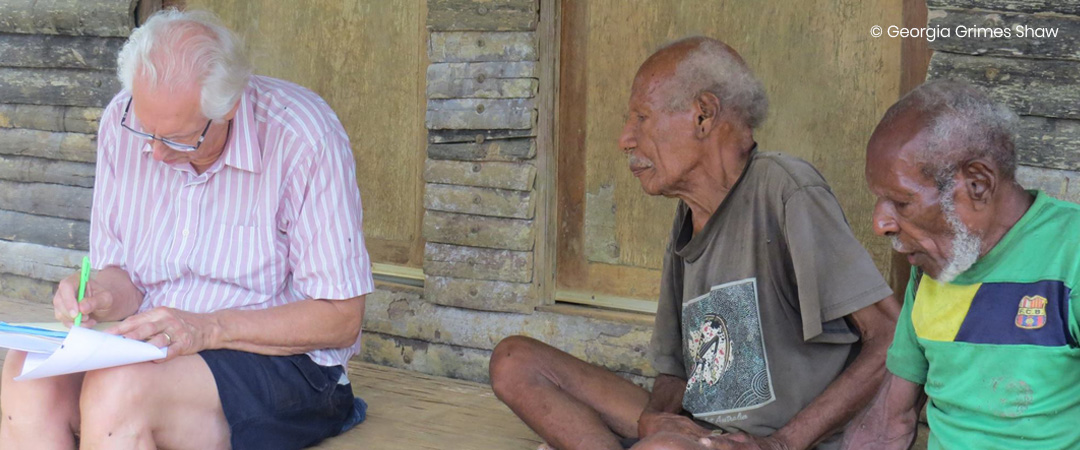
SINGING SAMO SONGS
A BOOK REVIEW
BY KEVIN WHITE
Kevin is a senior consultant/director with Resource Development Foundation (RDF) Consultancy (NZ), drawing on decades of experience as a missionary to Papua New Guinea and as a missions educator in Aotearoa New Zealand. Kevin has an MA in Intercultural Studies from Fuller Theological Seminary and lives with wife Yvonne in Hamilton New Zealand (as their base).
R. Daniel Shaw is Senior Professor of Anthropology and Translation at Fuller Seminary’s School of Mission and Theology. He is the 2022 recipient of the annual Lifetime Achievement Award, given by the American Society of Missiology, in recognition of his lifetime of engaging in and encouraging socio-religious research so that all people may receive God’s Word and apply it to their lives. What follows are my reflections on my good friend Dan’s book, Singing Samo Songs.
This ethnographic study combines the work of an Anthropologist, Linguist and Missiologist in one person and presents a great model for church development among indigenous peoples. The various transitions spoke powerfully to me. Samo accommodated many changes while being exposed to the Good News through different approaches.
The book clearly and faithfully records the impact of Western-influenced national missionaries mainly imposed on an already developing church. It records a situation where the Samo peoples were given an abridged version of the Bible (Baibo Booka) by Dan in their tribal language and sought to apply its principles within their cultural practices before other missions sent their “misso-prepared” indigenous pastors”. I was impressed by how Dan and Karen (his late first wife) committed the Samo language to written form and then translated the Bible, beginning in Genesis—and then giving it to the Samo as the Baibo Booka and allowing the space to develop their practices as they interpreted the meanings of the text.
I found this reading very interesting, firstly because it reinforces the logic of allowing indigenous people to apply cultural values and practices, that had already been part of their initiation processes, to their new life in Christ. One of Dan’s earlier books, Kandila, describes the initiation pathway for young Samo as they grew to formally participate in their society.[1]
Secondly, the book deals with the colonial approach to civilisation introduced by the Kiap (Government appointed officers, generally foreigners). The rules and regulations of a supposedly democratic process seemed more like a dictatorship to the Samo, expecting them to follow a set of Western laws, regulations and statutes.
Thirdly, a record of the Samo having to accommodate the Western missionary-prepared indigenous pastors who could not accept the Samo Christian community concepts developed by the Samo after reading their tribal language translation of the Baibo Booka. Samo received and took this translation as their church practice guide from their indigenous understanding of identity. I was impressed with how Dan wrote of these changes honestly and clearly with the Samo returning to indigenous practices and eventually convincing the PNG-prepared pastors to accept them as simple patterns for Christian life in the context of the Samo.
Because of my time as an urban missionary in Papua New Guinea, I take the liberty to note another transition not written about in Dan’s book. That is, the transition to accommodating modernity and technology taught to their young men and women as they moved into the cities for higher education and work and then returning home labelled as the ‘elite’. This is another story to be researched and written. I noted in Dan’s Epilogue, that he believed a Samo could well write the next book.
I believe this is an essential book for New Zealand church leaders to read. There is a genuine desire, already in progress, for our indigenous people to return to te reo, become bilingual, and introduce aspects of their culture back into their Christian worship. However, many of our Pakeha church leaders struggle to understand how this can be possible in the church. As a great example of what missions thinkers call “contextualisation”, may this book help ministers in Aotearoa New Zealand envision and encourage such an indigenous church in our own nation.
Amazon have this book for sale at US$45.00 each, plus postage to NZ and the Kindle version for US$36.00. I have ordered 20 copies to be brought out to NZ by a family member in late August, available in NZ at around NZ$48.00 plus internal postage. Feel free to contact me if you are interested in purchasing a copy.
[1] Shaw, Daniel R. 1990. “Kandila, Samo Ceremonialism and Interpersonal Relationships”. University of Michigan Press. ISBN 0-427-09426-2
CEO OPPORTUNITY: CAIRNS
The Opportunity
The Red Sea Counselling and Member Care Centre is seeking a candidate for the role of CEO to lead this crucial new ministry. The candidate will need to be an experienced, empowering leader who will have the ability to work within the not-for-profit sector in Australia. They will have good connections and experience in cross cultural ministry and mission. They will be available to move to Cairns, Australia.
The Organisation
The Red Sea Counselling and Member Care Centre exists to support Christian cross-cultural workers (past and present) through the provision of counselling, member care and training. We desire to see people equipped with the tools and skills to lead resilient lives and to carry out their calling and ministries, fruitfully and joyfully. See more here: https://redsea.org.au/.
The role
The CEO will work with the Board to create and sustain a clear vision for the future of the Red Sea. The CEO will provide management oversight across the organisation to ensure its effective and efficient functioning. As head of the executive team, they will manage the day-to-day operations of the organisation, its people, and resources.
Accountability
The CEO will be accountable to the Board of Directors
Key Selection Criteria
- Empowering leadership style
- Visionary leadership
- Spiritual leadership experience
- Qualifications and experience working in a Charity or mission
- Cross-cultural experience
For a position description and other enquiries please email the Board Chair—Rev. Karen Newnham.

I’M FINE (NOT)
STOP FAKING FINE-NESS
BY TAYLOR JOY MURRAY
Taylor Joy is a Missionary Kid, author, and speaker passionate about serving her generation in the areas of emotional health and spiritual formation. Her first book, Hidden in My Heart, giving words to often unexpressed experiences and emotions of missionary kids, was published when she was just 14. Her latest book, Stop Saying I’m Fine, was released in August 2022. She is currently completing her Master’s Degree in Clinical Mental Health Counseling. This article is curated from Taylor Joy’s contribution to A Life Overseas blog.
“Why do you think it’s so hard for missionaries to say, ‘I’m not fine?’” I recently posed this question to author and Third Culture Kid expert Ruth Van Reken. Her answer came swiftly and without hesitation, an answer that can only come from deep, personal experience. “It can take your whole faith apart.”
Ruth is in her seventies, a missionary kid who learned in boarding school how to copy “I’m fine” from the template on the chalkboard for every letter she sent home. I’m in my twenties, a missionary kid who’s been an expert-smiler since as early as I can remember.
In different ways across different decades, we both learned that being a missionary and not being “fine” is, well… not fine at all. How has this belief snaked its way through the missions community and persisted across the generations? One reason is that missionaries have historically been misconceived as spiritual superheroes among our Christian communities. I mean, how can superheroes not be fine? Another reason is the fear that our hardships might cast an uncomfortable sense of uncertainty on the goodness of the God who called us. We sacrificed everything for Him, right? Why is life so excruciatingly difficult?
These subtle questions and misconceptions littered my childhood and contributed heavily to the “I’m fine” theology that I began to live out. To help you fully grasp how these messages contributed to always being “fine,” I’d like to invite you into a snapshot of my story (taken from my new book Stop Saying I’m Fine: Finding Stillness When Anxiety Screams).
From the time I was a little girl, I went to church every Sunday. My dad was a pastor on staff, so it’s what we did. On Saturday nights, I always washed my hair for church the following morning, and I’d lay out something nicer than the clothes I’d wear on a typical Tuesday. I was often known by our congregation as the good girl who recited her memory verses perfectly, was always polite, and never complained. Although these were good, God-honoring things, some of the micro-messages that crept into my heart were not good. Or true. These micro-messages told me that being a good Christian meant always smiling and never talking about how you really felt.
I learned that putting yourself together and making sure you smelled nice is what you did before you went into God’s house. Although I knew these measures were typically heeded out of respect, I noticed that other people appeared especially happy with the polished version of me.
Is that how God felt about me, too?
When I was nine, my family sold our home and moved to East Asia. My parents planned to partner with local churches in efforts to advance the gospel. In the months leading up to our departure, we sold nearly everything we owned. One Saturday afternoon, I spread out all my toys, with parental instructions to choose three. Everything else ended up in a pile at our garage sale, sporting fifty-cent stickers.
I didn’t really know how to feel that day. I stood in the corner and watched strangers carry out our couch and kitchen table and silverware. I felt okay until a woman with short, spiky hair carried out my green bedspread. That was my bedspread. My throat tightened with a shiver of emotion. I loved that bedspread. I loved my room. I loved my home. I loved my life. I suddenly really didn’t like this moment.
The losses just kept rolling in. But people kept telling me how excited I must be and how much we were honoring God by our commitment. I chalked up my grief to discontentment and determined to be fine. Wasn’t it silly to be sad about toys and bedspreads and ice-skating lessons when more important things (like gospel proclamation) were at stake? Besides, I was the good little girl who never complained. The micro-messages seeping into my heart sounded something like this: Anger and sadness are not allowed. These emotions are bad. Being happy all the time is what it means to honor God.
So, I learned to be fine until the lights went out.
Curled up in bed at night, those pangs of loss would overwhelm me. No one told me point-blank that I shouldn’t cry, but the last words whispered to nine-year-old me before boarding that first flight overseas was, “Be a good little girl for your mommy and daddy.” I wanted to be good girl, and everyone knew that good girls didn’t cry. No wonder Ruth told me that saying “I’m not fine” can take your faith apart. If you can’t hold faith and pain together, then being fine becomes your only option. As missionaries, have we fastened the value of our faith to the faulty condition of being fine?
I’ll be the first to raise my hand here. As an MK, I wanted to please. I didn’t want to hinder the advancement of the gospel. But those honest hopes and fears eventually suffocated any sense of authenticity from my personal relationship with God. I forgot that the gospel of grace is for “I’m not fine” people. But I couldn’t go the Father in my pain and sorrow when I thought I had to hide it from him.
“There’s a difference between resignation and submission to God’s will,” Ruth wisely told me. “Submission is when we wrestle and eventually say, ‘I will believe that you are good and faithful and true even if I don’t feel that way today.’” This truth is etched throughout Scripture, resounding of a different, more honest way of engaging in the Christian walk. Jesus at the garden of Gethsemane. David’s gut-wrenchingly honest laments in the Psalms. The Apostle Paul’s declaration that the truth (not our tidiness) is what truly sets us free.
Today, perhaps the invitation for you and me is to breathe in grace. Breathe out honesty. To allow ourselves space to wrestle. And to recognize that, in the end, a whispered admission of “I’m not fine” is what oftentimes actually holds our faith together.

PRAYERLINKS
PRAYER FUEL FOR MISSIONS
Please pray for the team at Christian Witness to Israel, particularly for the Lord’s provision of a new roof. Ours was badly damaged in the storms earlier in the year and it needs to be replaced before the winter rains come in earnest. Thank you all for your continued interest in the work of missions in Aotearoa New Zealand, it is very much appreciated.
Pray for the Interserve International Personnel Conference happening in the Netherlands 21-25 May, especially for Charles Erlam who will be representing the Aotearoa New Zealand office. Pray too for Charles as he visits field workers during his time away. Pray for our new co-National Leaders, Cynthia and Graham as they ease into their roles, adjust to the transition from the field, and recover from some illnesses.
Please continue to pray for Jay as he contributes to the wellbeing of missions in various overseas engagements. He will be consulting with the International Council of Langham Partners in Sydney on 15 May. He will be off again to make three presentations at the Asia Mission Association (Indonesia, 22-26 May) followed immediately by OMF’s Mission Research Forum (Singapore, 29 May-2 June). Pray too for the preparation of, and leaders’ participation in, the Missions Leaders Connect day being held at WEC HQ in Gordonton on 15 June, the day after the next MI Council meeting on 14 June (a budget-setting meeting).
Thanks for your ongoing prayers for our OMF NZ-based team. We have two upcoming events on 13 May and 22 May—pray for our planning and execution of worthwhile events, which grow people’s hearts for mission. Johan Linder, Shireen Chua and Sylvia Yuan are planning an intercultural training workshop at Northcote Baptist on 25 June—pray it would go well and that hearts would be moved. Pray for Shireen Chua as she finishes her PHD and looks to get some Marketplace Ministry events up and running. Give thanks for lots of interest from people exploring short-term trips, and for many churches wanting to increase their involvement in mission. We are keeping busy and loving it!
A new book “A Clean Place for my Fire”, telling the story of former WEC NZ Leaders Ivor and Rose Davies and their time during the Congo revival, is having a series of book launches this month. It promises to be an inspiring read and a reminder of God’s heart for the nations. Pray that this book will be used to encourage, inspire and stir young and old alike throughout Aotearoa New Zealand.
Give praise for John Rentz’s time in the Solomon Islands as he was able to work with the Äiwoo (a language spoken in the Reef Islands of Temotu Province in the Solomons) translation team to help them use Paratext [a translation computer program] and to complete the review of Matthew’s Gospel. Pray that the team can continue to send and receive drafts in Paratext with John over the internet. Pray for the Wycliffe NZ home staff while they are in the midst of transition over the next few months. Pray also for the preparations as Wycliffe NZ celebrates 60 years as a New Zealand mission in September.

SPOTLIGHTS
LATEST NOTICES & EVENTS
EASTWEST COLLEGE VIRTUAL OPEN NIGHT
Eastwest College of Intercultural Studies, is planning an online Virtual Open Night on the 18th of May to share more about the college. If you don’t know much about Eastwest, this is your opportunity to ask questions and find out more. In short, we’re passionate about seeing Christians receive training to help them succeed in cross-cultural ministry, and we’re so encouraged by our graduates who are already serving all over the world.
ONLINE
Link to be provided to registrants
18 May 2023 | 7-8pm
CLICK HERE to register. We would love to see you there!
For more info contact: media@eastwest.ac.nz.
WOMENS INTERCULTURAL LEADERS CONFERENCE
Dr Leanne Dzubinski and Dr Evelyn Hibbert are organizing an online conference on Women’s Intercultural Leadership. The aim of this event is not just to learn from the presenters but also from all participants’ experience. Participants will have the opportunity to receive and comment on all the papers and video presentations. Sessions will also be recorded so that you can still view and interact even when the time does not suit you. Also featuring:
- Barbara Deutcschmann
- Rosemary Dewerse
- Cathy Hine
- Mary Lederleitner
- Laura Macias
- Diane Marshall
- Mersina Papantoniou
- Naomi Wolfe
- Jeanne Wu
ONLINE
Via link provided to registrants
Saturday 3 June 2023 | 5:30am-9pm (NZST)
CLICK HERE to register on Eventbrite.
MISSIONS INTERLINK’S LEADERS CONNECT DAY
An opportunity for missions leaders from around Aotearoa New Zealand to gather in the countryside for a day to discuss common missions, organisational and/or personal concerns. This is a space for missions CEOs (or functional equivalent) to share openly and in confidence in a prayerful and supportive environment. Missions Interlink membership is not a prerequisite for participation.
WEC NZ HQ
25 College Drive
Gordonton, Waikato
(Beside Eastwest College campus)
Thursday 15 June 2023 | 10am-4pm
WEC is kindly hosting this event, so there is no cost, but please RSVP for catering purposes to: info@missions.org.nz by Friday 9 June 2023.
CHRISTIAN LEADERS’ CONGRESS
New Zealand Christian Network’s National Congress is being planned for September 2023 in Auckland. This will be an event for pastors, church leaders, Christian organisation leaders (incl. missions), Christian leaders from different denominations, generations and cultures.
SAVE THE DATES
SOUTH AUCKLAND
Venue to be confirmed
19—21 September 2023
TEEN MISSIONS SHORT TERM OPPORTUNITIES
Teen Missions DownUnder is planning a great array of adventures for teenagers this coming summer. Teams are scheduled to go to the Solomons, Arnhem Land with MAF, the Philippines, Madagascar and Fiji.
CLICK HERE to find out more about each opportunity.
NEW JESUS FILM HUB OPENS IN AUCKLAND
The Jesus Film is excited to announce the opening of a new Jesus Film Regional Hub in Auckland, in partnership with Tandem Ministries.
The regional hub’s goal is to engage with the local Kiwi churches to send mission teams on short term mission trips throughout the South Pacific, using Jesus Film tools and training.
If you would like to learn more about one of our 3 upcoming information training sessions, please feel free to contact us at: JesusFilm Regional Hub Auckland.
ABOUT US
Executive Officer Jay Mātenga
Administrator Pauline Wood
Executive Team
Joseph Bateson (Chair), Glenn Carter (Vice Chair), Jon Horne (Treasurer), Russell Thorp (Secretary), and Andrew Marriot.
MI Council
Arotahi (NZBMS), Asian Outreach, Church Mobilization Trust, Eastwest College, European Christian Mission, GC3, International Teams, Interserve, Laidlaw College, LeaDev-Langham, MAF, MotiVate (Missionary Ventures), NZCMS, OMF, Pioneers, SIM, WEC, World Vision, with individual member: Jon Horne.
Our Purpose
We facilitate collaboration towards participation in mission from and within Aotearoa New Zealand. We nurture the missions community in Aotearoa New Zealand to connect, converse, and conduct mission with the aim of working together: on mission.
Connecting the missions community
from and within Aotearoa NZ
for God’s glory everywhere, always.
MI SERVICES include (but are not limited to):
MI BULLETIN MI Online Member Directory
MI ManaakiApp (for retail discounts & coupons)
MI Research and Resources
MI Conferences, Clusters & Collaborations:
Admin, Mission Leaders, Church Mission, Diaspora,
Member Care, Mission Training, Mobilisation, & more.
HOW TO CONTACT US
PO Box 64 379
Botany 2163
Auckland, New Zealand
+64 9 320 4408
CLICK HERE to drop us a note.
ADVERTISING
The MI BULLETIN is distributed by email every month to around 1000 missions interested people.
Commercial Rates & Sponsorship
Only charity rates are listed here. Commercial ad rates and sponsor benefits are set by negotiation.
Spotlight Notices
Text only (up to 50 words with one web link).
MI members — FREE
Non members — $40 per spotlight
BULLETIN Full Colour Ad Space
Artwork must be supplied (.jpg or .pdf, 300dpi)
Deadline: Last Friday of the month before issue.
COST: MI MEMBERS
First Month
A4 Portrait—$130
A5 Landscape—$80
Successive Months
A4 Portrait—$90
A5 Landscape—$60
Non-members, double the member rate.


